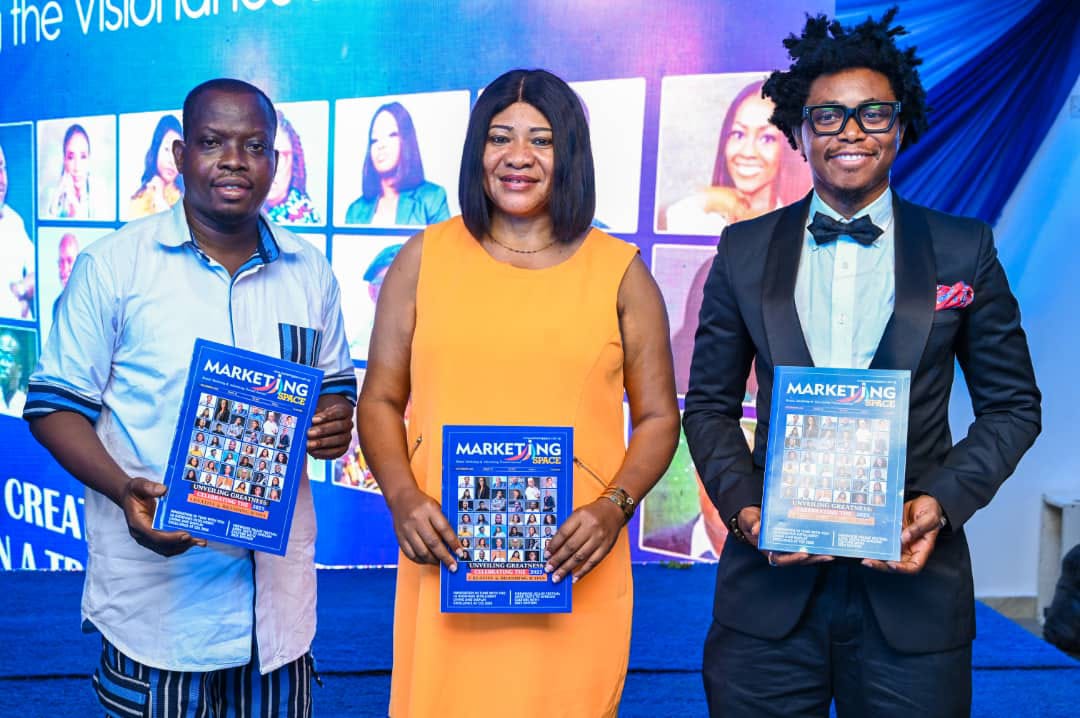
An Associate Professor of Advertising, Public Relations and Media Studies at the Department of Communication and Media Studies, Imo State University, Owerri, Kingsley Onyebuchim Nworgu, has decried what he calls erosion of kingship status of the consumer of products, services and media contents, advocating aggressive “consumer education, consumer protection and consumer solidarity.”
Nworgu disclosed this recently during an inaugural lecture/conversation series of ‘Town and Gown Arena’, an initiative of the lecturer and academics, both ‘in and outside’ the institution.
In his ‘lecture /conversation’, titled: ‘Interrogating the ‘kingship’ of the consumer in the 21st century market economy’, Nworgu, head of the newly established Department of Advertising, said from research, observations and realities on ground, the consumer appears to have kingship relevance problems in view of the seemingly non recognition of his/her pride and importance as the end-user of any product put out by the manufacturers, suppliers and service providers in the recent times.
The media, he said, should also be objective, neutral, fair, truthful and professional in the delivery of information and news materials/contents.
The immediate past Head of Department of Mass Communication of the institution, just unbundled to the status of Faculty of Communication and Media Studies, insisted that to recover the relevance of the consumer in market place of ideas, economy, “there must be consumer education, consumer protection and consumer solidarity,” as a ‘sine qua non’ for healthy reciprocity among key players in the value chain of manufacturing and consumption of various products and services, including that of the media.
In the interactive knowledge sharing, socialising and networking activity, Nworgu said there should be re-awakening consciousness and sensitisation, among other media marketing refining strategies to be applied by the players and stakeholders in the industry to ensure that the media also plays pivotal role in the dissemination of information to the public.
He said: “The conversation has brought us to the fore the fact that the kingship of consumers are being eroded by manufacturers of goods and providers of services. The warning is that if this trend is left unchecked the consumer’s kingdom where he reigns as king will be totally taken over and the consumer will be left helpless to the manipulation of manufacturers and service providers.”
The academic cited examples of recent treatments meted to consumers, regretting that some banks do not quickly reverse money transferred, but unable to be delivered to the intended recipients and beneficiaries.
He also gave a knock on those who sell products by deception, regretting the experience he had not too long when he bought a ‘factory-faulty’ item from a trader twice, yet the manufacturer and the seller could not change the item. He expended twice N25,000 each, making a total of N50,000, lamenting that the two items are literarily displayed as decorations in his living room.
He stressed: “I bought a product from the seller. I discovered that it was not working. I repeated it and from the same seller, but when I asked, I was answered, that is how I bought it. Till date, those items are serving as decorations in my living room.”
Nworgu also faulted the legal system that does not give quick dispensation of justice, advising that more legislations and laws be reformed and offered to ensure that the consumer is given the opportunity to have justice delivered to him if he experiences neglect or cheating.
The lecturer designated quality time to delve into marketing distinguishing between a consumer, customer and buyer, stressing that a consumer is the person who is the final user of the product. In economics, Nworgu hinted that the user is the end- user, explaining as well “the person who buys a product may not be the consumer of the product, at last.”
In the kingdom perspective and in the marketing aspect, the buyer, is subjected to the issues unfolding, bringing to question he asked, “Is the consumer the king? A kingdom is where product satisfies the need. The characteristics of a king include a king gives instructions. A king dishing out instructions and he does not take instructions. In this case, in our clime, do the kings, as in the case of consumers, give instructions when the manufacturers are creating a war in our head? How about the product differentiation? It is what the manufacturer is doing. The Kingship of the consumer is eroded. Because of what some manufacturers are doing, we are no longer recognising the Kingship of a consumer. This calls for further interrogation and more research and development efforts to be taken on by further discourse. This should come to focus at intra -personal, inter -personal, non person and media terrains.”
He asked the audience some questions, “How could the kingship of the consumer be restored in Nigeria and beyond?”
According to him, the products of ‘zero this and zero that’ are not found anymore because some of them are based on deception. Among the prominent academics and personalities who attended the intellectual harvest include, renowned Professor of Political Economy, Sam Ezeanyika; the Head of Department of the Mass Communication, Imo Polytechnic, Dr. Uloma Okolie; the National Drug Law Enforcement Agency (NDLEA) Deputy Zonal Commander, Imo Zone, Dr. Nnanna Nworisa; lecturers in the faculty such as Dr. Cajetan Iheanacho, Onyiruka, Fabian Okalla; Clinton Ogu, other academics, students and officials of the university, among others.
The communication guru urged lovers of knowledge to stand on their way to start further research on the subject and develop the discourse in order to add to the body of knowledge and for the powers that be to leverage on the topic on the front burner.
Participants held that the age long kingship status of the consumer of products should not be allowed to erode or taken away, adding that the debasing treatment given to the consumer should stop.
They also held that the consumer should explore all legal options where necessary if those involved in the value chain err. Another correction option, the participants opined, is the consumer avoiding buying or consuming the products, in the case of the manufacturers and service providers failing to accord him such business recognitions.






